|
With Fabian: Going to the Dogs, Graf masterfully disentangles many of the tenets of living a moral life through textual mastery and precise formal command in which the prolific filmmaker oscillates between modes of expressivity to deliver a deeply rich tapestry of the Weimar republic. While watching Fabian: Going to The Dogs I was consistently reminded of Karl Polyani's The Great Transformation. While the film is intrinsically political, Fabian: Going to the Dogs fundamentally recognizes that the economic superseding the social; the market embedded into the social fabric of society is what fundamentally made ethical living far more malleable to the prongs and desires of power. Social respectability/desirability became increasingly tied to economic status, effectively forging a path towards social degradation in which morality becomes supplanted by ethics which intrinsically can be far more shaped by external sources. In the case of this particular epoch, desperation breeds even more grand scale despondency and indoctrination, one in which the allure of stability quickly deteriorates morality in a time when economic success was desperately desired. What I think Fabian: Going to the Dogs manages to captures so well are the methodical and pernicious ways in which authoritarianism manifests itself, manipulating the social's existential concerns of order and stability as a means to exert itself. Through this epic story of love and loss and the slow, methodical march towards authoritarianism, Fabian: Going to the Dogs ultimately, in its denouement, is a plea of morality above all else. While tragic, this film's conclusion is far from cynical about the human spirit's propensity for good, showcasing one individual's willingness to act in the morally righteous way, despite the cold-hard logic of the situation. The morally just decision is not one tapped to external forces but one which is a feeling from within. Imbued with playfulness, danger, tension, and romanticism, Fabian: Going to the Dogs is a rich work that I would presume could have a host of variant readings, and what Graf has crafted here has a specificity to a time and place in history but one that ultimately feels transcendent in the way it navigates the ideals of moral living.
0 Comments
Having not read the Roth book in which this was based, and knowing practically nothing going in, Deception took me by surprise in just how astutely it manages to weave a dream-like emotional tableau that reaches towards transcendental notions of being despite such a quaint spatiality. Elegantly directed with an eye towards obfuscating any rigid dichotomy between perception and reality, Deception is rhythmically arranged to encapture how fleeting moments in the present can become eternal in our consciousness, with living itself being a continuous evaluation with one's internal self. Intimate, honest, and expansive about connection, reciprocity, and egoism with underpinnings rooted in how diaspora both disrupts and ultimately creates culture.
Synthesizes rigorous Rohmerian formalism with sharp, bone-dry comedy. Not a film that will work for everyone - the comedy is extremely low-key and the film's more languid proclivities may frustrate but it ultimately manages to be quite poignant in its ruminations on a generation attempting to find their way in a world beyond logic or comprehension. There is great attention to detail throughout this film, both rhythmically and from the perspective of characterizations. Moments of introspection amongst the chaotic milieu of modernity is perhaps the quickest way to distill this film's dramatics, and Friends and Strangers doesn't feel like a film going out of its way to be funny or quirky, it simply is providing a lens to the low-key absurdity of modern life. Distinct comedic sensibilities placate angst for ennui - a sly, affecting film that manages to efficiently wrestle with colonialism in a way which doesn't feel even marginally didactic, pedantic, or pompously assured. Far from perfect but also a film that makes me very curious to see what James Vaughan does next.
"Are we being watched? Are we being?"
An ambitious and immersive travelogue with metaphysical aims that is messy yet intoxicating, Aleph won me over more than not due to its hypnotic formal arrangements and intentions rooted in exploring the essence of being detached from external social structures. Existential longing, cultural specificity, and the universality of the human condition are explored through a meditative mode of investigation that sometimes divulges too much into pedantic notions of understanding that undercut its more extraordinary elements rooted in the recognition that we, as human beings, can never fully comprehend or understand life itself. At its best Aleph finds comfort and acceptance in the great unknown, illustrating the great illusion of modernity and the false reality that technological innovation and societal notions of progress have transcended the elemental and metaphysical. One aspect of Aleph that worked exceptionally well for me is its ability to encapture one of the core tenets of existential longing. Traversing various individuals and their distinct circumstances and expressivity, Aleph exhibits the universality of the great unknown and feelings of insignificance we all often have felt - an individualistic response to a world in which control is largely an illusion. How we individual agents in this grand system that is unquantifiable and unattainable respond in different ways is well-rendered. For one of the characters, a numbness towards feeling and emotion enshrouds her perceptions of the world; for another affect and feeling become hyper-focused and ubiquitous to experience. This is where Aleph shines, its recognition of the multitude of ways in which we as cognitive entities engage with the universe and attempt to find some semblance of solace or meaning. Observational more than assured notions of seeing are what make this film work at its best; how it details the tenets of solitude - both the positive and negative - stood out to me. Solitude provides us the need for internal introspection but it also can detach us from primal necessities and impulses towards social engagement and interaction. The axis between inquiry and affect is obfuscated. The binaries we often construct as a way to find meaning are more often than not facile at best, and complete illusions at worst. Aleph often contradicts itself with some of its more pedantic moments - particularly struggling when it tethers itself to specific political or social circumstances of contemporary agitation. These moments of reflection and rumination are emotionally revealing but often too divergent from Aleph's more existential and boundless aims beyond the material. Aleph is flawed, messy, and emotive, and yet I found it to be largely compelling, more often than not transcending beyond the specificities of politics or culture to reach for a more expansive attempt at acceptance and understanding not bound by material reality. An enthralling familial saga, Cain & Abel's structural framework is designed around escalation that infuses a pointed critique of the masculine ego, and the confrontational mindset, with a steadfast diet of ever-increasing horror where lives are relinquished and things continuously spiral deeper into the abyss of moral degradation. Pride or righteousness supplants any desire for attaining a sense of understanding, and it's no mistake that all the women in this film, all the innocent, are the first to see their lives extinguished. There is a commentary on masculinity but arguably class or any socially constructed division that invites confrontation. The authoritative matriarch perhaps a thinly-veiled allegory for the destructive dictatorship of the state. The class division and resentment between the two brothers, sparked by an imbalance of educational opportunity and a system (family) in which choice is a near fabrication. Melodrama masterfully molded around what is ostensibly a crime film, Cain & Abel purveys the ruinous effect aggression and division can place on humanity. Death is swift and life can be a long, continuous struggle in a world in which imbalance is intrinsic. What Brocka seems to continuously do in his films is deliver rich characterizations and an assured understanding of class and gender dynamics no matter the specific genre.
A wonderfully-realized story of adolescence that feels more amorphous than tethered to narrative structure or any form of cadence, capturing progression and experience like few films do. Rapturous rendered, Tree of Knowledge exhibits the fluidity of our identities and emotions impacted by external experiences that continuously refine our lives, wants, and desires. Calling the Tree of Knowledge a coming-of-age story doesn't feel like an accurate descriptor, or perhaps it just feels too slight for what Nils Malmros has crafted. The Tree of Knowledge is so expansive, so acutely observed, recognizing that we as individuals are defined by collective experiences and the various entanglements of social interaction that drive the constantly shifting and re-adjusting act that is self-actualization and discovery. Imbued with such vitality from beginning to end, The Tree of Knowledge doesn't feel particularly interested in excavating drama instead it simply wishes to expose what life is - a series of experiences. The use of light in this film jumped out to me - whether the sun itself, candlelight, or a class projector - the contrast between light and darkness evokes the impressionable time of adolescence where a slight deviation can lead towards morally good or morally corrupt acts. From the body to the mind, adolescence is a continuous process of renewal full of jubilation and melancholy, and simply put, I'm not sure I've ever seen a film that so wonderfully captures this in what feels like such organic documentation of not only growing up but life itself.
Property and Possession - The Silences of the Palace is a rich, textual examination of suppression and coercion that beautifully interweaves the political struggles of colonialism with the social struggles of femininity to deliver an emotionally piercing study of the ultimate struggle for freedom detangled from authoritative or hierarchal impulses towards control or ownership. Quietly devastating, the languid pacing provides ample opportunities for a multi-layered approach that never devalues the film's personal, intimate story while also beautifully expressing the universality of such a struggle. There is a sense of danger that enshrouds this film, one that isn't often expressed in plain sight but how the feminine body and the male gaze are expressed through this quiet sense of menace is so acute and deeply penetrating. The Silences of the Palace recognizes the true horror of such strict patriarchal ideas is how they become merely commonplace, even accepted without resistance in order to survive. Much like the act of creating such a film in the first place, The Silences of the Palace ultimately expresses the necessity for resistance and rebellion, yet in its final frames it fully recognizes the embedded and ubiquitous nature of masculine toxicity in which our main protagonist, now fully grown, still has little power over her own decisions as it pertains to her body. For my money, one of the great feminist texts.
A deeply enthralling document of social action and political oppression that deploys a distinct formal style, marrying the intimacy of personal evocation with the expansiveness of social documentation to deliver a poignant, stirring portrait of the struggle from oppression. A Night of Knowing Nothing is structurally distinctive in the way it examines social, political, and economic means of oppression, detailing through the plight of art students, who struggle with the fascistic evolution of India under Modi and the coercive hierarchical structures in place that ultimately make a truly harmonious way of living out of reach. Subjugation and division - both detailed through the intimate letters of L, an unknown university student who writes about her ruptured relationship at the hands of the caste system, and the more expansive social struggle for dignity and respect amongst all religions, castes, and creeds - A Night of Knowing Nothing deftly manages to be incredibly assured yet never polemic, imbued with a sense of longing that aches with pathos but also resolve, pleading for a world free of all forms of social oppression while recognizing the struggle inherent to such ambitions and the importance of collective action.
A dark crime drama framework inoculated by absurdest, pitch-black comedy. A love story but not a love story - Pretty singular in its derangements that aim for humor as much as thematic introspection. A time of decline and doubt that is captured in a lot of French cinema of this era, I found myself reminded of Bertrand Blier's Buffet Froid & Going Places, the latter for me significantly better than the former. I think Serie Noire is one of the more hilarious deployments I've seen, aiming to evoke the collective anxiety and milieu of this era in which many felt left behind. Fending for themselves amongst the cultural imperialism brought by America's preferred economic system, Serie Noire captures this through the lens of a complete buffoon. Projects a deteriorating morality in which violence and division are incubated. Patrick Dewaere provides such a beautifully combustible, unhinged performance, and the juxtaposition between him and the quiet, stagnant performance by Marie Trintignant is something to behold. There is probably something to be said here about the male ethos towards the need for control and inherent fragility given this juxtaposition and how the film transpires as well. Uncomfortable in moments, abrasive, and hilarious - I couldn't look away thanks in large part to Patrick Dewaere's all-timer performance.
"Images are a form of discrimination".
The pursuit of happiness - what we all wish to attain - and yet we often fool ourselves into believing such things are mechanical or defined and not a perpetual state of navigation with both the internal (consciousness) and the external (experience). Jun Ichikawa's Tokyo Marigold is deeply affecting and incisive in its ruminations on connection, self-actualization, loneliness, and the indescribable and often untenable nature of deciphering affect. Longing is beautifully rendered but what I think Tokyo Marigold achieves so well is the exhibition and omnipresence of social experience, recognizing how much of our intentions and desires are sculpted by social interaction, observation, and engagement. The difficulty of finding happiness is often rooted in our ability to decipher what we see and experience externally with what we feel internally. There is just such an elegance to the formal arrangements, with Tokyo Marigold being so acutely designed yet what I've already appreciated about Ichikawa is how this expressivist style never feels forced or overt, it sneaks up on the viewer through his use of composition, mise-en-scene, and visual assembly. Ichikawa as a filmmaker clearly recognizes the power of the image, and I've found all his films to be beautifully constructed, but I think what I love so much about Tokyo Marigold is how he engages with how such images in our day-to-day life inform our own idealism about relationships, love, or happiness. Also, perhaps this is reductive or facile, but I couldn't help but feel like this film has had some influence on Ryusuke Hamaguchi's work - or at least, I would imagine he is a fan of this film, and likely Ichikawa's work in general. |
AuthorLove of all things cinema brought me here. Archives
June 2023
|
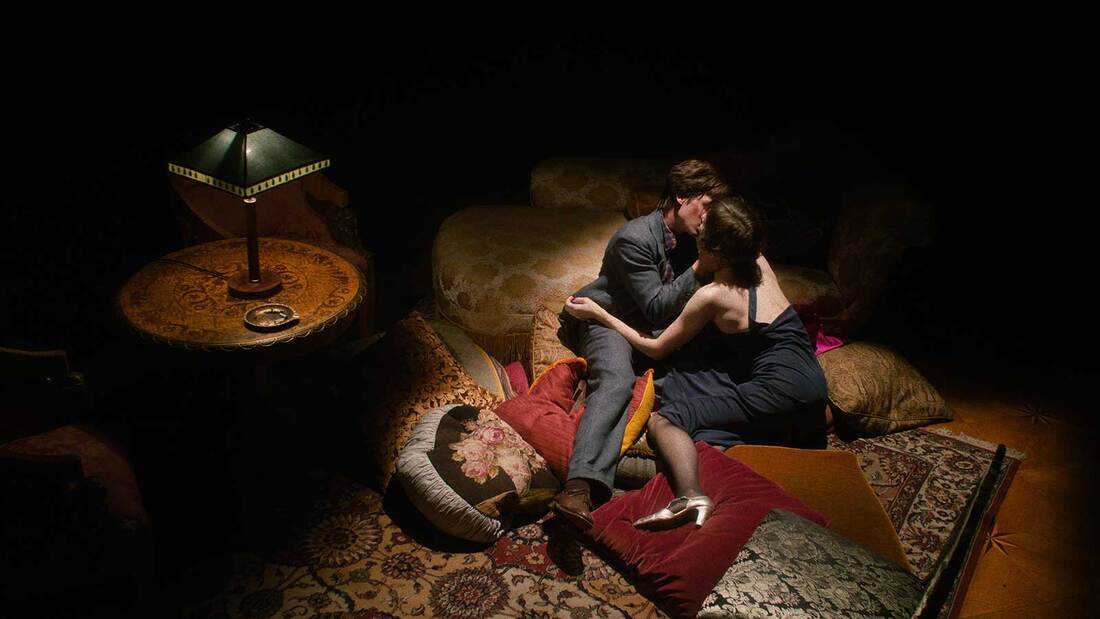

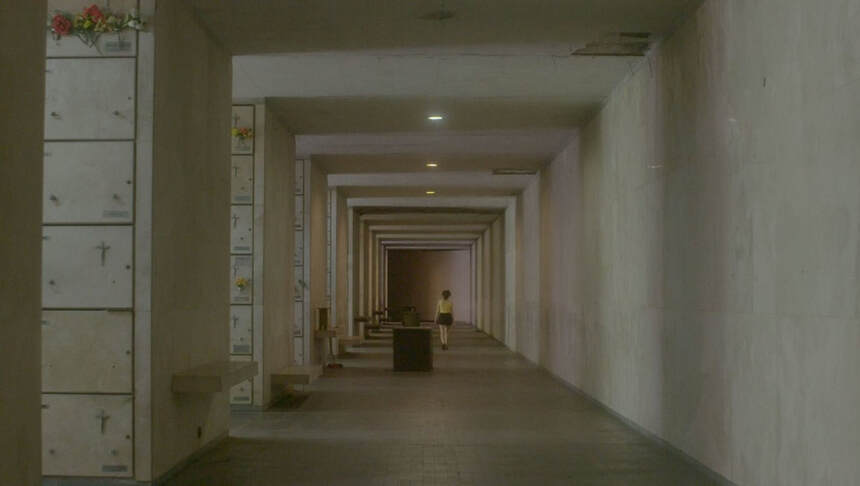
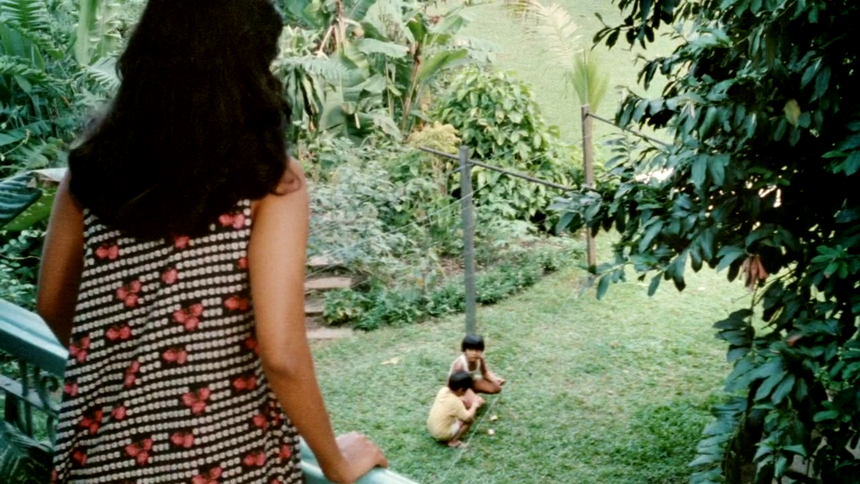
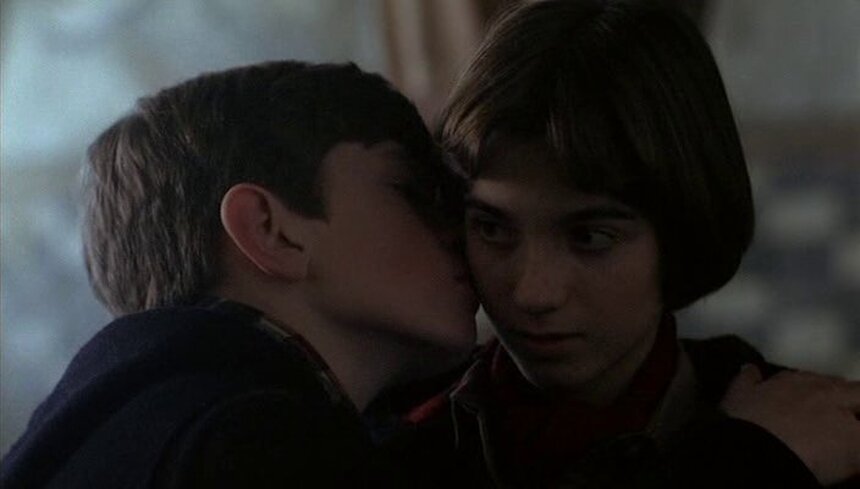
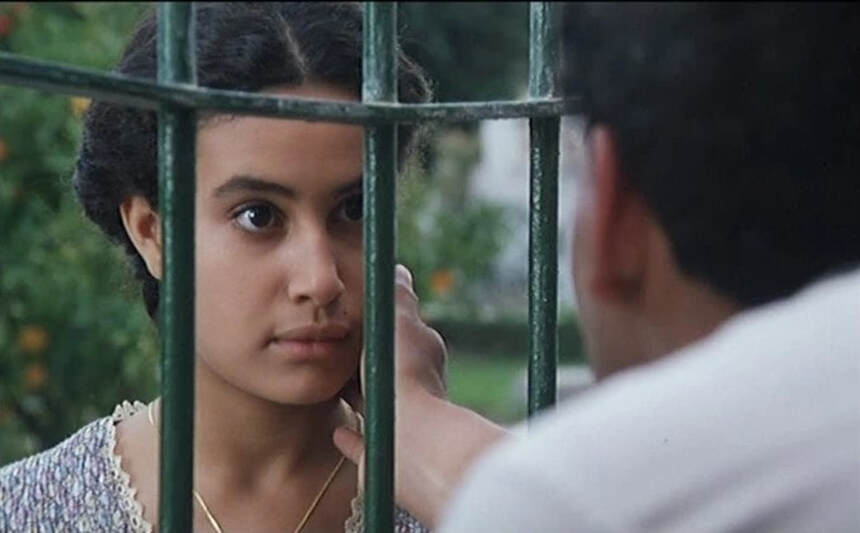
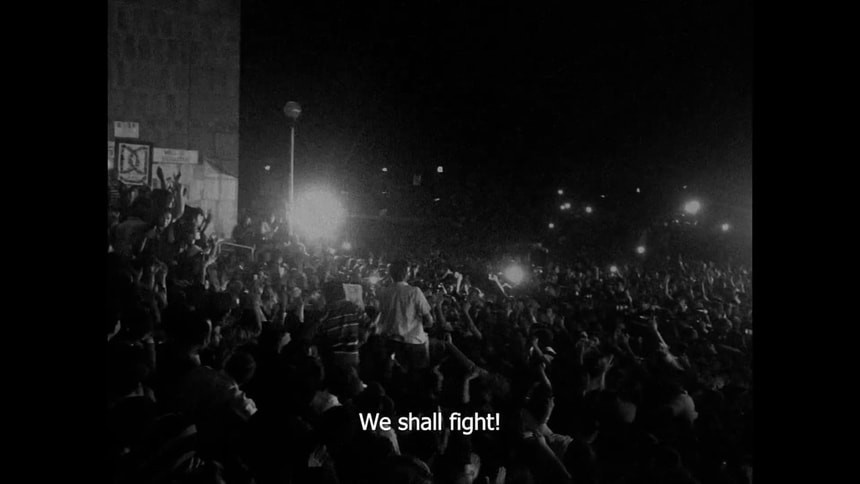
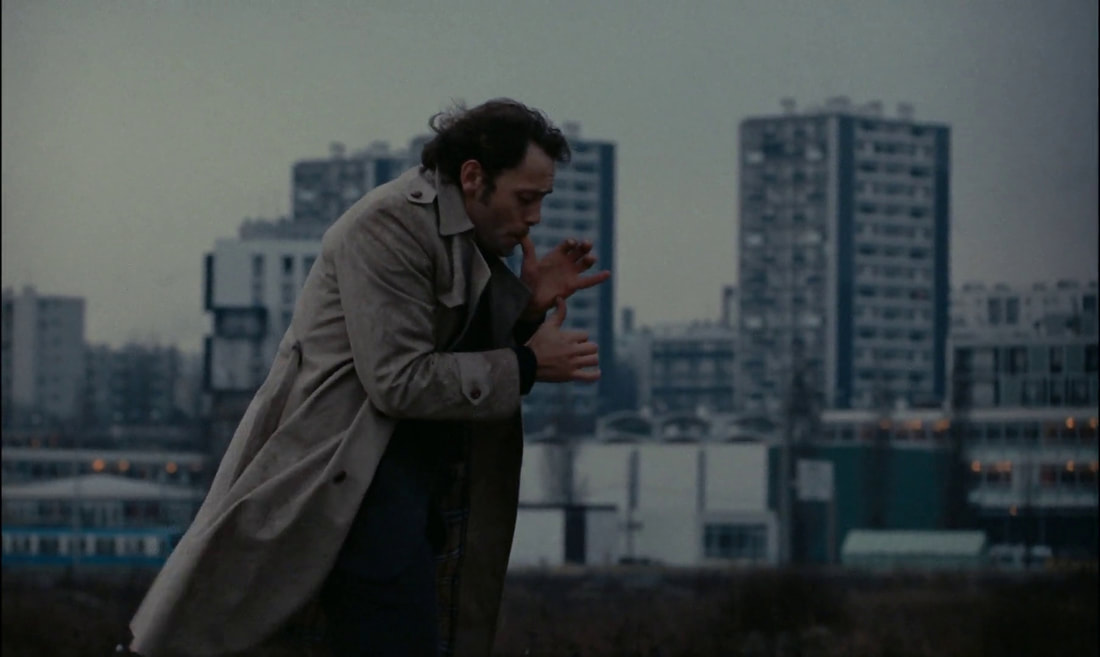
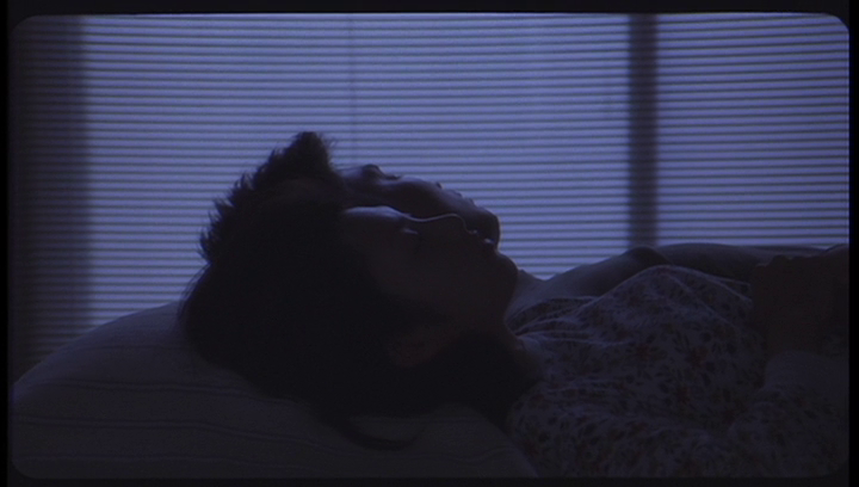
 RSS Feed
RSS Feed
